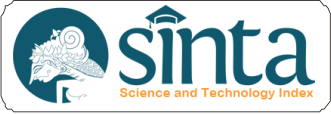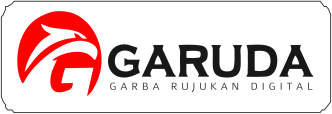The Influence of Monopoly Media on The Learning Outcomes of Students in Elementary School
Abstract
Abstrak
Penelitian ini dilakukan karena masih banyak siswa kelas IV memiliki hasil belajar yang rendah pada pelajaran PPKn. Masalah ini muncul ketika guru belum memanfaatkan media pembelajaran dengan optimal khususnya menngunakan media monopoli. Tujuan dari penelitian ini adalah peneliti ingin membantu siswa dalam meningkatkan hasil belajar PPKn dengan menggunakan media monopol. Metode penelitian yang digunakan adalah kuantitatif berbentuk eksperimen atau eksperimen semu. Penelitian ini melibatkan dua kelompok, yaitu kelompok control dan kelompok eksperimen, populasi yang digunakan yaitu siswa kelas IV A dan IV B dengan jumlah 60 siswa, yaitu 30 siswa kelas control dan 30 siswa kelas eksperimen. Hal ini terbukti dengan nilai rata-rata kelas eksperimen yang menggunakan media monopoli 79,50 tergolong dalam kategori tinggi, sedangkan kelas kontrol yang tidak menggunakan media monopoli 58,13. Pengaruh penggunaan media pembelajaran monopoli pada hasil belajar peserta didik pada pembelajaran PPKn di kelas IV SDN Cijantung 01 Jakarta Timur. Hal ini terbukti dengan nilai thitung yang diperoleh yaitu 9, 192 sedangkan nilai ttabel yaitu 2,064, jadi nilai thitung > ttabel sehingga H0 ditolak H1 diterima. Maka dapat disimpulkan bahwa media monopoli dapat meningkatkan hasil belajar.
Abstract
This research was conducted because there are still many grade IV students who have low learning outcomes in PPKn lessons. The purpose of this study is that the researcher wants to help students improve PPKn learning outcomes by using monopol media. The research method used is quantitative in the form of experiments or pseudo-experiments. This study involved two groups, namely the control group and the experimental group, the population used was students of grades IV A and IV B with a total of 60 students, namely 30 students in the control class and 30 students in the experimental class. This is evidenced by the average score of the experimental class that used monopoly media of 79.50 classified as high, while the control class that did not use monopoly media was 58.13. The effect of the use of monopoly learning media on student learning outcomes in PPKn learning in grade IV of SDN Cijantung 01 East Jakarta. This is proven by the tcount value obtained which is 9.192 while the ttable value is 2.064, so the tcount value > ttable so that H0 is rejected and H1 is accepted. Therefore, it can be concluded that monopoly media can improve learning outcomes.
References
Darniyanti, Efriani, & Susilawati. (2021). Development of Comic Media for the Implementation of Pancasila Precepts PPKn Grade 3 at Dharmasraya Regency Elementary School. Journal of Education, 30(3), 455. https://doi.org/10.32585/jp.v30i3.1789
Diyanah, I., & Atok, A. R. Al. (2021). Improving Students' Critical Thinking Skills Through a Jigsaw-Type Cooperative Learning Model with Monopoly Game Media. Scientific Journal of Pancasila and Citizenship Education, 6(1), 201. https://doi.org/10.17977/um019v6i1p201-209
Kharom, A., Sutjihati, S., & Munandar, R. R. (2020). Development of Monetary Games (Monopoly Vertebrates) as a Learning Media for Students. Journal Of Biology Education Research (JBER), 1(1), 1–9.
Ninawati, M., Rahmiati, R., & Wahyuni, N. (2021). The Effectiveness of Audio Visual Learning Media on Online Learning on Science Learning Outcomes of Grade IV Students of Sdn Pademangan Barat 11 North Jakarta. RESPONSIVEP: Journal of Basic Education Research and Innovation, 2(1), 64–73. https://doi.org/10.55933/tjripd.v2i1.273
Noor Amalia. 2023. Improving the Learning Outcomes of Pancasila Education in My Country Indonesia through the Problem Based Learning Model for Class IV at SDN 01 Samirejo Kudus.
Saleh, S. (2023). Improving Discipline Attitudes in PKN Learning Using a Reflective Pedagogical Paradigm Model for Grade III dI Students of SD Negeri Koli. Scientific Journal of Wahana Pendidikan , 9(9), 735-743.
Siskawati, M., Pargito, P., & Pujiati, P. (2016). Development of monopoly learning media to increase students' interest in learning geography. Journal of social studies, 4(1), 72-80.
Suharyanto, Magill, & Whitington. (2018). The Role of Civic Education in Fostering Tolerance Attitudes Between Great Students. Pediatric Radiology, 14(1), 59–61. https://doi.org/10.1007/BF02386737
Suharyanto, Magill, & Whitington. (2018). The Role of Civic Education in Fostering Tolerance Attitudes Between Great Students. Pediatric Radiology, 14(1), 59–61. https://doi.org/10.1007/BF02386737
Supit, D., Melianti, M., Lasut, E. M. M., & Tumbel, N. J. (2023). Visual, Auditic, Kinesthetic Learning Styles on Student Learning Outcomes. Journal on Education, 5(3), 6994-7003.
Wahyuningtyas, R., & Sulasmono, B. S. (2020). The Importance of Media in Learning to Improve Learning Outcomes in Elementary Schools. Educational : Journal of Educational Sciences, 2(1), 23–27. https://doi.org/10.31004/edukatif.v2i1.77
Wijayanti, S. P., Suswandari, M., Veteran, U., Nusantara, B., & Mathematics, P. (2022). The Impact of the Use of Abacus Media in Mathematics Learning in Primary Grades. 4(1), 58–66.
Yuni Sara. 2022. The Effect of Quartet Card-Based PPKn Learning Media on Student Learning Interest at SMP PGRI 4 Jambi City. Diss. Pancasila and Citizenship Education.










